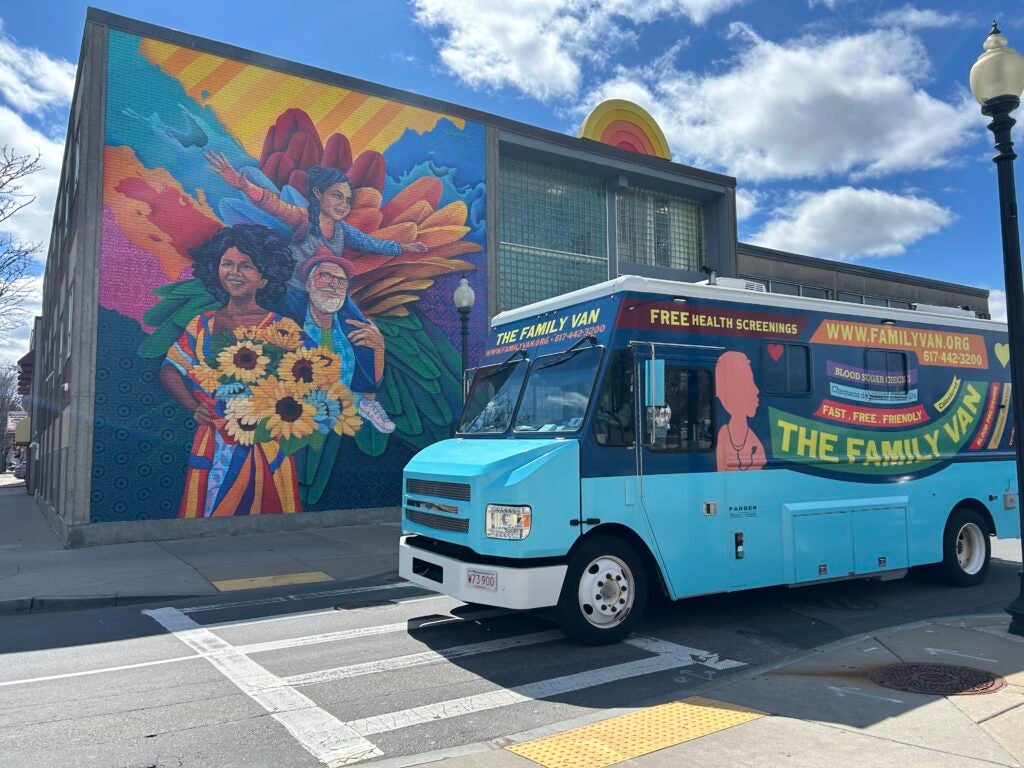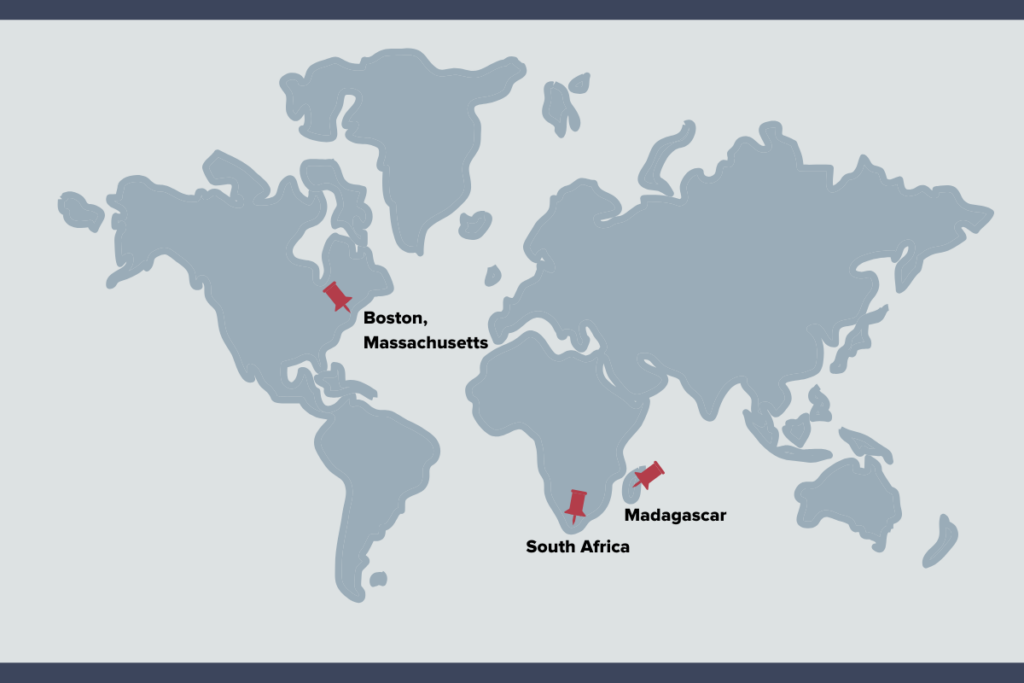Center for Climate, Health, and the Global Environment
We seek climate solutions that can provide for a healthier and more just world today and a livable future for our children.
665 Huntington Avenue
Building 1, Room 1312
Boston, MA 02115
The Center for Climate: Equitable and Accessible Research-based Testing for Health (C-EARTH)
Federal funding for this project was terminated in May 2025. We are actively fundraising to continue this work.
Impact level: Individuals and communities
Locations: Boston, South Africa, Madagascar

What problem are we trying to solve?
Climate change is causing more extreme temperatures, which directly harms people’s health and also affects food and water supplies. Communities that have historically experienced disinvestment, or where residents don’t have the means or infrastructure to protect themselves, are hardest hit. We’re finding solutions that protect health and buffer against the risks of extreme heat to keep these communities safe.
What climate and health solutions are we researching?
We are testing how to keep people safe from extreme heat, especially in communities that are most at-risk from extreme weather due to social and environmental challenges or discrimination. We are evaluating tailored interventions to address heat stress in vulnerable populations: air conditioners for high risk older adults in Boston; cool roofs in South Africa; and community cooling centers and cold storage units for fisheries to reduce foodborne illness in Madagascar.
What’s the level of impact?
We are testing climate and health solutions that can benefit entire communities, starting in Roxbury, East Boston, Mattapan, and Dorchester in Boston; Umlazi, South Africa; and 12 coastal villages in Southwest Madagascar. We work closely with stakeholder groups in each community to identify their most pressing challenges, then work with them to test solutions that would be achievable and sustainable in their community.
Who will this research benefit?
This work may identify effective solutions to heat stress in Boston, Madagascar and South Africa. If effective, these strategies may be implemented at scale to save lives in these communities and others experiencing similar challenges around the world.
Who are the collaborators, key partners, and stakeholders?
In Boston, we are collaborating with The Family Van, a mobile clinic that delivers free, compassionate care in Boston, and Communities Responding to Extreme Weather (CREW), a local organization dedicated to building climate resilience through education, outreach, and targeting essential resources to the city’s most vulnerable families.
In South Africa, we are working with the ARISE Network, a collaborative effort among 21 leading institutions from nine sub-Saharan African countries, Heidelberg University, and Harvard Chan School, to conduct research and develop capacity to mitigate the impact of extreme heat and climate-related shocks on nutrition and health in South Africa.
In Madagascar, we are working with Reef Doctor, a community-based non-profit that conducts conservation and social development efforts in Southwest Madagascar, to build patches of artificial coral reef to rehabilitate fisheries resources and increase local people’s access to seafood in the context of ongoing famine-like conditions. We are also working with the National Network of Women in Fisheries in Madagascar, a local women’s group that works to improve women’s livelihoods and access to resources.
Where is the research happening?

Learn more
To get in touch with the research team, contact Anna Miller.
